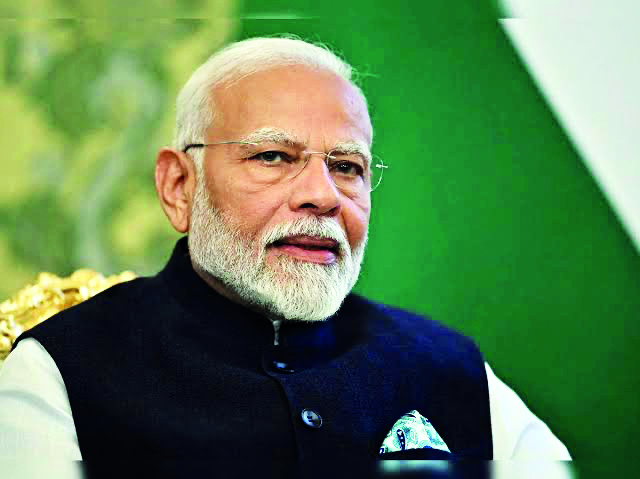PM set to inaugurate historic train service between Delhi, Srinagar

New Delhi: According to government sources, Prime Minister Narendra Modi is scheduled to make the anticipated inauguration of the train service between the Kashmir Valley and the nation’s capital, New Delhi, this weekend.
It is significant as this visit will be PM Modi’s first to Jammu and Kashmir since the devastating terror attack in Pahalgam on April 22, which claimed the lives of 26 innocent lives and left many others injured.
The visit comes amid heightened security across the region, especially in areas sharing an international border with Pakistan. Security protocols have been beefed up to make the Prime Minister safe during his visit and to attend to any possible security issues.
PM’s address on this event is anticipated to command significant attention, considering the background of the fatal attack, in addition to recent ‘Operation Sindoor’, a major military operation in Jammu and Kashmir.
The launch of the train service, however, promises to bring a ray of hope to an area that has been plagued for ages by transportation infrastructure issues. The opening of the Udhampur-Srinagar-Baramulla Railway Link (USBRL), a project that has been in the pipeline for more than two decades, is set to revolutionise transportation, trade, and tourism in the area.
Despite being originally planned for April 18, the event was delayed because of the Pahalgam attack. However, the train service is all set to be a huge stride in reviving normalcy and improving the local economy, especially the tourism industry, which has been badly affected by the attack.
Ever since the tragedy in Pahalgam, the tourism sector in the Kashmir Valley has experienced a steep fall.
Yet, state and Central governments are in discussions with major stakeholders in the tourism industry, considering steps to get the sector back on track. 2024 had seen a record-high number of tourists in the valley, but the attack put concerns that the area might lose its charm as a tourists’ hub. The addition of the train service is set to reverse this decline, particularly with the impending Amarnath Yatra, which traditionally draws thousands of pilgrims.
The USBRL project, launched by the Central government in 1999 and announced as a national project in 2002, ranks among the most ambitious projects by Indian Railways in its history since independence. The project, which seeks to develop a safe, all-season transport network for Jammu and Kashmir, has faced enormous engineering challenges because the state lies in a rugged Himalayan region.
The work entails the excavation of 38 tunnels with a combined length of 119 km, including India’s longest rail tunnels—the Sumber-Arpinchala T49 (12.75 km) and Pir Panjal T-80 (11.2 km).
Apart from tunnels, the project also includes 931 bridges with a combined length of 13 km.
Among them is the renowned Chenab Bridge, which has gained the reputation of being the world’s highest railway bridge. It is situated in the Reasi district of Jammu and Kashmir, with the Chenab Bridge crossing 1,315 meters long and rising 359 meters above the Chenab River.
Built at Rs 1,486 crore by Konkan Railway Corporation, the bridge was engineered to take speeds of 100 km/h and is intended to last for 120 years. It has been built to take extreme climatic conditions, including wind speeds up to 266 km/h.



